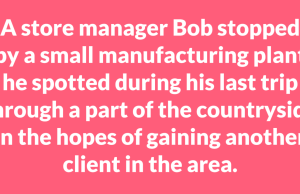In the polished corridors of St. Joseph’s Medical Center, where every reflection shimmered with urgency, a woman in faded blue scrubs pushed her mop bucket past the cardiology wing’s swinging doors. Her badge bore a single name: “Maria.”
To most, she was part of the background — just the cleaning lady.
No one suspected that the woman diligently wiping floors had once worn a different kind of uniform — a lab coat, clipboard in hand, a stethoscope casually looped around her shoulders. But that chapter belonged to the past.
It was an ordinary Monday. The hospital buzzed with motion: doctors on rounds, nurses adjusting IVs, interns faking confidence.
But today, something was different.
Mr. Victor Langston, a billionaire and well-known political donor, had been rushed in late Sunday with concerning symptoms — sudden dizziness, blackouts, and irregular heartbeats. The best minds were summoned. Tensions ran high across departments.
And still, no diagnosis.
Victor’s condition was worsening, and the administration was on edge. This wasn’t just a medical emergency — it was a potential scandal. A misstep with Victor Langston could spell disaster for careers.
In the staff lounge, a group of young residents hovered around the vending machine. Exhausted and edgy, one — Dr. Nate Bell — glanced through the window and spotted Maria.
“Guys,” he said, grinning, “what if we got the janitor to weigh in? Maybe she’ll mop up a miracle.”
Their laughter echoed — the kind born from pressure and fatigue.
“I double dare you,” another muttered.
Moments later, Dr. Bell motioned her over. “Hey, Maria! You’ve been around here longer than all of us. Want to give our VIP patient a go?”
Maria paused, unsure whether he was serious. But the smirk in his eyes made it obvious — it was mockery. A challenge.
She hesitated. Then offered a gentle smile and said, “Why not?”
Victor Langston was pale and clammy, his body attached to blinking monitors. His wife, Elaine, sat quietly at his side, her expression tight with fear. Nearby, a cluster of physicians murmured over charts.
Dr. Bell cleared his throat. “Everyone, meet Maria. She’s one of our longest-standing staff members. We thought she might take a guess.”
Dr. Shaw, the senior cardiologist, raised a skeptical brow. “This has to be a joke.”
Maria entered, calm and silent. She didn’t study the monitors. Instead, she focused on the patient.
“May I?” she asked softly, motioning toward Victor.
Shaw scoffed but gave a reluctant nod.
Maria stepped closer, gently touched Victor’s wrist, and shut her eyes.
The room grew still.
She examined his hands, noting the bluish tinge to his nails. Then she lifted the blanket and lightly pressed his feet.
Then, with measured calm, she asked, “Has anyone tested for cardiac sarcoidosis?”
Everyone stared.
“What?” Shaw barked.
Maria looked at him directly. “The arrhythmia, breathlessness, AV blocks… It doesn’t follow typical patterns. His leg swelling and lack of fever point to something systemic — not viral. His skin tone, his eyes… it all fits.”
Elaine sat upright. “Wait, Victor had strange eye inflammation a while ago. They said it might be uveitis!”
Maria gave a slow nod. “That lines up. It’s rare, but in patients over sixty, cardiac sarcoidosis can present like other heart conditions.”
Shaw folded his arms. “That’s ridiculous. It’s too rare. And you’re not a doctor.”
But Dr. Bell was already scrolling through his tablet. “Hold on… she might be right.”
Tests were ordered. A PET scan was done. Hours later, the results confirmed it:
Cardiac sarcoidosis.
It was manageable. They’d caught it just in time.
Within a day of starting steroids, Victor’s vitals began to stabilize.
Word traveled fast — who was this woman who diagnosed what specialists couldn’t?
The next morning, Maria received a summons to the hospital administrator’s office.
Dr. Martin Hayes sat behind an elegant desk. “Maria… or should I call you Dr. Maria Alvarado?”
She lowered her eyes. “It’s been years since anyone used that name.”
He offered a warm smile. “Why didn’t you say something?”
She took a seat. “My son died during my residency. I couldn’t continue. Cleaning gave me solace. I didn’t want to practice medicine anymore. I just wanted to serve, in my own way.”
Hayes nodded. “Well, you saved a life yesterday. A high-profile one.”
She shrugged. “All lives matter.”
By week’s end, the story had exploded online: “Janitor Detects Billionaire’s Hidden Heart Condition!” Reporters camped outside the building. Maria avoided them all, declining interviews.
When Victor was stable enough, he asked to meet her.
Elaine pushed his wheelchair into the garden where Maria knelt, tending to blooming flowers — a small patch she’d cared for over the years with the hospital’s blessing.
He gave her a sincere smile.
“You saved me,” he said.
She returned it. “Happy to help.”
He reached into his robe and handed her a card. “My foundation’s always looking for brilliant minds. If you ever want to return to medicine, we’ll support you. Or if you’d rather keep gardening, we’ll build you the best one in town.”
Maria shook her head. “Thank you. But I’m exactly where I need to be.”
He looked puzzled.
She nodded toward a nearby bench, where a young nurse quietly wept after a grueling shift. “Every day, someone in here feels broken or unseen. I listen. Sometimes, that’s the most healing thing of all.”
A month later, a small event took place in the courtyard.
Victor Langston unveiled a plaque: “The Maria Alvarado Healing Garden.”
She didn’t attend.
She was inside, calmly wiping up a spill outside the pediatric unit, softly humming — unnoticed, and perfectly content.
















